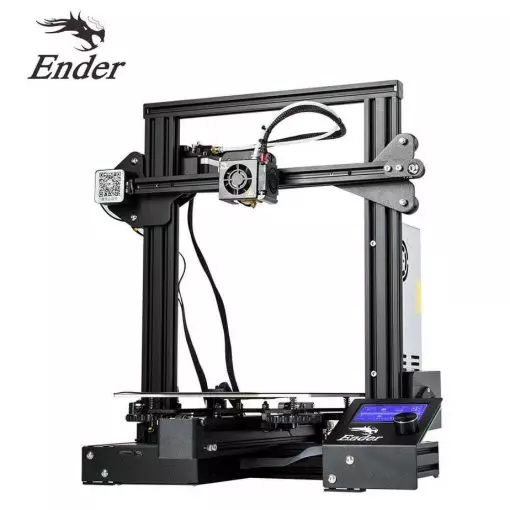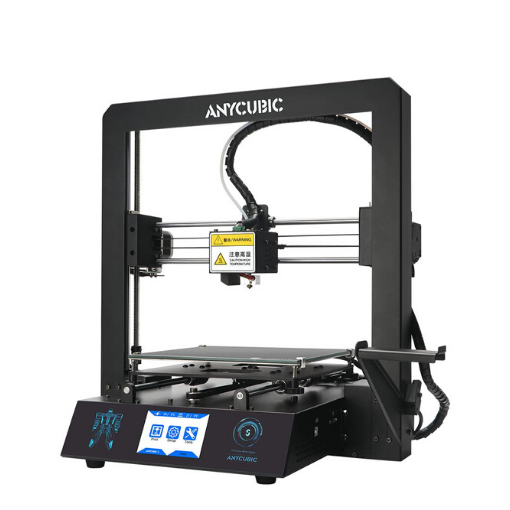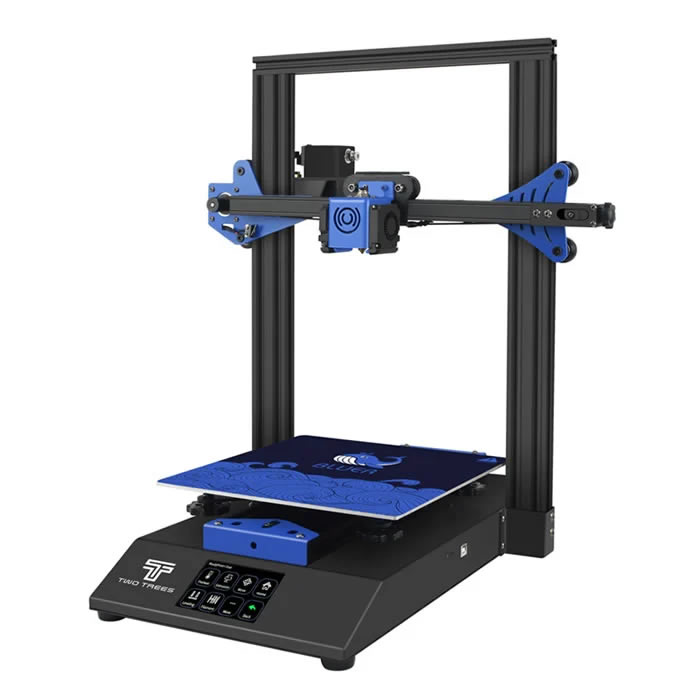Compare Ender 3 vs Mega S vs Bluer
Comparison between the best 3D printers
Choose the best 3D printer at the best price. The cheapest 3D printers are here.
Buy a 3D printer here with 3D Fila.
 |
 |
 |
|
| Model | Ender 3[BUY Ender 3] |
Mega S |
Bluer |
| Printing Material | Filament | Filament | Filament |
| Estimated price | $210,00 | $149,00 | $169,00 |
| Fabricante | Creality 3D | Anycubic | TwoTrees |
| Release Year | 2018 | 2019 | 2019 |
| Print Volume [mm] | 220x220x250 | 210x210x205 | 230x230x280 |
| Printer Size [mm] | 440x440x465 | 405x410x452 | 400x410x520 |
| Weight [kg] | 6,62 | 14,5 | 8 |
| Power Loss Recovery | NO | YES | YES |
| Enclosed printer | NO | NO | NO |
| Bed Leveling | Manual | Manual | Manual |
| Filament End Sensor | NO | YES | YES |
| Bed type | Heated | Heated | Heated |
| Power supply system | Bowden | Bowden | Bowden |
| Standard nozzle | 0,4 | 0,4 | 0,4 |
| Maximum Nozzle Temperature [°C] | 255 | 260 | 260 |
| Maximum Bed Temperature [°C] | 110 | 110 | 100 |
| Maximum printing speed [mm/s] | 180 | 100 | 200 |
| Filament holder | YES | YES | YES |
| Camera for supervision | NO | NO | NO |
| Recommended filaments | PLA, TPU, ABS, PETG | PLA, TPU, ABS, PETG | PLA, PETG |
| Recommended slicers | Cura, Simplify, Slic3r | Cura, Simplify, Slic3r | Cura, Simplify, Slic3r |
| Maximum Resolution [mm] | 0,1 | 0,1 | 0,1 |
| Processor | 8 bits | 8 bits | MKS Robin Nano V1.2 + TMC2208 |
| Display | Mono | Touchscreen TFT 2,8'' | Touchscreen TFT 3,5'' |
| Power Supply | 24V / 270W | 12V / 300W | 240W |
| Connectivity | SD / USB | SD / USB | SD / USB |
| Operating systems | Windows, Mac, Linux | Windows, Mac, Linux | Windows, Mac, Linux |
| Date of registration in the system | 2021-04-13 | 2021-04-15 | 2021-09-20 |
| Release date | 2018 | 2019 | 2019 |
| Extra features | The Ender 3 V1 is a DIY assembly 3D printer, a sales leader since 2017, standing out for its cost-benefit. With a wide printing capacity, it has a CNC machined structure for precision and stability. It offers high-precision prints with low noise, thanks to its innovative V-profile and pulleys. It has a self-adhesive magnetic platform for easy removal of models and excellent adhesion. The Ender 3 heats up quickly, reaching 100°C in 5 minutes, ideal for agile prints. It includes protection against power failures, allowing you to resume printing after interruptions, saving time and material. | The Anycubic Mega S offers a printing platform with excellent adhesion, easy removal after cooling. It has a filament sensor for a better experience with flexible materials and a multilingual and intuitive color touchscreen. Assembly is quick, requiring only 8 screws and 3 connections. It has a large build volume (210 x 210 x 205 mm), high positioning accuracy and supports a variety of materials, including TPU, PLA, ABS and wood. It stands out for its solid metal structure, superior stability, high-quality printing with layer resolution of up to 50 microns, Ultrabase for easy adhesion and removal of parts, resumption of printing after power outage, high-quality extruder for flexible filaments, suspended filament support and stable structure that reduces shaking, improving printing quality. | The Bluer offers interesting features such as automatic bed leveling, a 3.5-inch color touchscreen for easy operation, and a filament sensor to prevent print failures. It has a robust metal extruder and a generous 230 x 230 x 280 mm print volume, suitable for a variety of projects. The community mentions improvements made by Two Trees based on feedback, increasing its reliability. |
| Support for multiple colors and materials (AMS and CFS) | NO | NO | NO |
Notes * |
|||
| Cost-benefit | 6 / 10 | 7 / 10 | 7 / 10 |
| Hardware | 0.5 / 10 | 2 / 10 | 2 / 10 |
| Screen | . | . | . |
| Print volume | 3 / 10 | 3 / 10 | 3 / 10 |
| Performance | 1 / 10 | 1 / 10 | 2 / 10 |
| [BUY Ender 3] |
Conclusion |
| In comparing the Ender 3, Anycubic Mega S, and Bluer 3D printers, each model presents unique strengths and weaknesses, making the choice highly dependent on the buyer's specific needs and budget. The **Ender 3** is renowned for its value proposition, with a balance between performance and price. Its larger print volume combined with features like a heated bed and competitive print speeds make it a reliable choice, though it lacks advanced features like power loss recovery. Its DIY assembly might appeal to those looking to engage with the setup process. The **Anycubic Mega S** stands out with a robust build quality and an intuitive touchscreen interface, enhancing the user experience. It features a dependable adhesion system, automatic power loss recovery, and a filament sensor which are appealing attributes for those printing regularly with various materials. However, its slightly smaller print volume compared to the Ender 3 could be a limitation for larger projects. The **Bluer** offers slightly more print volume than the Mega S and includes automatic bed leveling, which is a significant convenience for users. Its 3.5-inch touchscreen and filament sensor improve usability and reliability. However, it may not be as well-known or tested in the market as the other two options. In terms of pricing, the **Anycubic Mega S** is the lowest priced model, making it an attractive entry point for beginners or those on a budget. The **Bluer**, while offering mid-tier pricing, incorporates useful features like bed leveling, appealing to novice users wanting a bit more ease and reliability. Ultimately, for users prioritizing print size and a well-established product, the **Ender 3** is a solid choice. Meanwhile, those looking for enhanced usability and have a bit more flexibility in budget should consider the **Anycubic Mega S**. For users seeking a balance of features and usability with a slightly larger print capacity, the **Bluer** presents a compelling option. In conclusion, the decision hinges on what features are most crucial to the user's printing needs. |

